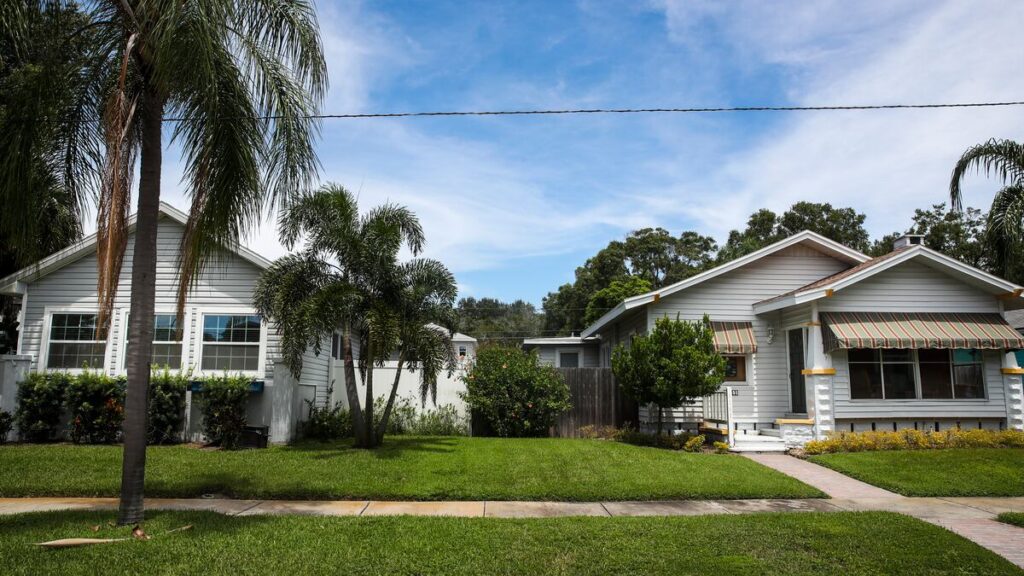Discrepancies in Property Taxes: A Closer Look at Florida’s Save Our Homes Amendment
Property taxes can vary significantly among neighbors, as evidenced by two homes in the Starkey Ranch development in Odessa, Florida. Despite sharing similar attributes such as square footage, construction type, and the number of bedrooms and bathrooms, their property tax bills diverge dramatically.
The Case of the Metrovichs
Mark and Leslie Metrovich purchased their home in January 2021, leading to a higher official appraisal that directly impacts their tax bill. In contrast, their long-time neighbors on Callisia Drive have benefitted from Florida’s Save Our Homes Amendment, which provides a tax shelter for established homeowners.
- Metrovich’s Tax Bill: $5,125
- Neighbor’s Tax Bill: A third less, thanks to longer residency and tax protections.
This situation highlights how newer homeowners may find themselves paying significantly more in taxes than those who bought their homes years earlier, despite holding similarly valued properties.
Understanding the Save Our Homes Amendment
The Save Our Homes Amendment, enacted by Florida voters in 1992, was designed to protect long-time homeowners from increasing property taxes due to surging market values. Here’s how it works:
- Taxable Value Capping: The amendment limits yearly increases in taxable values to either the Consumer Price Index or 3%—whichever is lower.
- Tax Burden Shift: As a result, newer homeowners without homestead exemptions can face disproportionately high tax bills.
According to the Pasco Property Appraiser’s Office, property values in the area have soared by approximately 16.7% in the last year, further exacerbating the issue for recent buyers.
Illustrative Comparisons Across Regions
Further illustrating these disparities, similar cases emerge in the Country Way neighborhood in Carrollwood, where:
- One homeowner faces a proposed tax bill of $1,337.
- A neighboring homeowner receives a bill of $4,334, despite both homes having market values close to $290,000.
The difference? The first homeowner benefits from the Save Our Homes exemption, which effectively reduces their taxable value.
Perspective on Property Tax Fairness
Mark Metrovich raises a vital point: “I think it should be equitable. Taxes should be calculated based on the value, not when a property was purchased.”
While some, like attorney Phillip Russell, accept the higher tax bills as a reasonable outcome—“Everybody pays by the same equation… The fact my home is more valuable isn’t my neighbors’ fault”—the disparities continue to ignite debates about fairness.
Dominic M. Calabro of Florida TaxWatch expresses concern over the Save Our Homes Amendment, calling it a fundamental flaw:
“It’s not a tax cap. It just puts an artificial constraint on one type of property at the expense of everyone else. Fundamentally, that’s un-American.”
Examining Broader Impacts
The implications of these tax disparities reach beyond individual homeowners. Local governments rely on property taxes to fund essential services such as schools, police, and fire protection. Habitat for Humanity of Hillsborough underscores these challenges for low-income homeowners, noting that rising home values dramatically affect property taxes—even for homes that were built to provide affordable housing.
For example:
- A Habitat home in Ybor City with a market value of $164,000 faces full taxation, while a luxurious property in Davis Islands valued over $1.5 million benefits from substantial exemptions, showcasing the steep inequities the Save Our Homes Amendment can create.
Conclusion: A Need for Change?
The ongoing disparities in property taxes raise important questions about equity and fairness in Florida’s tax system. With escalating property values, discussions around reforming the Save Our Homes Amendment and creating a more equitable tax structure are increasingly relevant.
For further information on property taxes and exemptions in Florida, visit the Florida Department of Revenue or consult your local property appraisal office.
Understanding these complexities can empower homeowners to engage in meaningful dialogues about tax reforms that serve all members of the community fairly.


